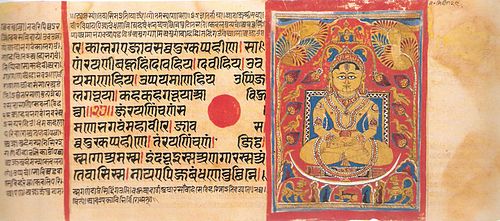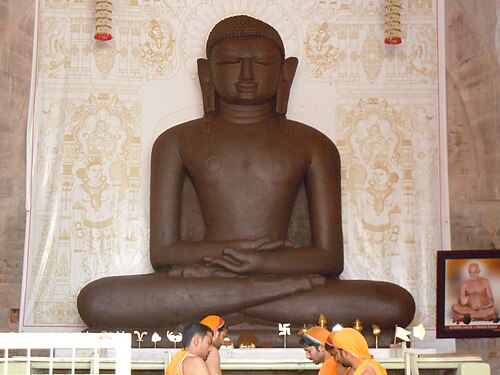Mokshanoun
In Indian philosophy and theology, the final liberation of the soul or consciousness from samsara and the bringing to an end of all the suffering involved in being subject to the cycle of reincarnation.
Moksha
Moksha (; Sanskrit: मोक्ष, mokṣa), also called vimoksha, vimukti and mukti, is a term in Hinduism, Buddhism, Jainism and Sikhism for various forms of emancipation, enlightenment, liberation, and release. In its soteriological and eschatological senses, it refers to freedom from saṃsāra, the cycle of death and rebirth.
Nirvananoun
(Buddhism) Complete cessation of suffering; a blissful state attained through realization of sunyata; enlightened experience.
Nirvananoun
State of paradise; heightened or great pleasure.
Nirvananoun
In the Buddhist system of religion, the final emancipation of the soul from transmigration, and consequently a beatific enfrachisement from the evils of worldly existence, as by annihilation or absorption into the divine. See Buddhism.
Nirvananoun
(Hinduism and Buddhism) the beatitude that transcends the cycle of reincarnation; characterized by the extinction of desire and suffering and individual consciousness
Nirvananoun
any place of complete bliss and delight and peace
Nirvana
Nirvāṇa ( neer-VAH-nə, -VAN-ə, nur-; Sanskrit: निर्वाण nirvāṇa [nɪɽʋaːɳɐ]; Pali: nibbāna; Prakrit: ṇivvāṇa; literally, , as in an oil lamp) is a concept in Indian religions (Buddhism, Hinduism, Jainism, and Sikhism) that represents the ultimate state of soteriological release, the liberation from repeated rebirth in saṃsāra.In Indian religions, nirvana is synonymous with moksha and mukti. All Indian religions assert it to be a state of perfect quietude, freedom, highest happiness as well as the liberation from or ending of samsara, the repeating cycle of birth, life and death.











